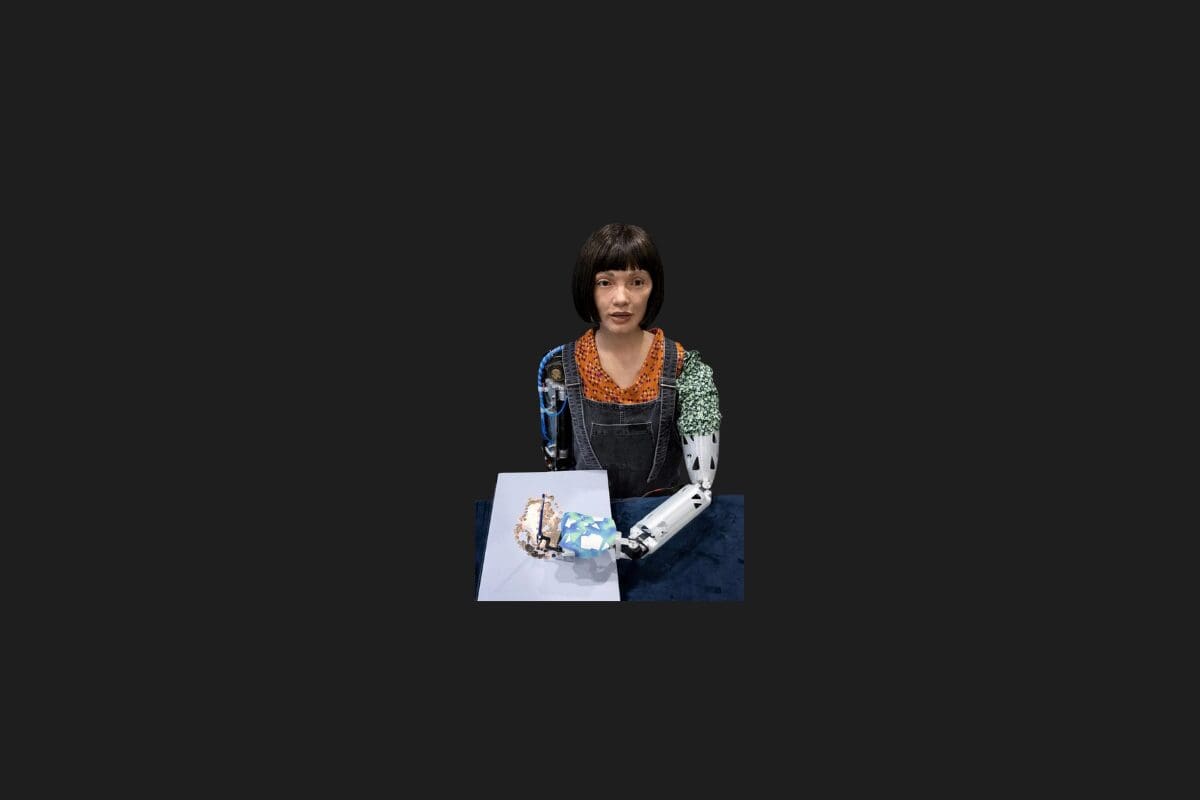A portrait of the renowned British mathematician Alan Turing, created by Ai-Da—one of the world’s most advanced humanoid robots—has sold for a record-breaking price. This remarkable artwork, titled A.I. God: Portrait of Alan Turing, is the first-ever artwork crafted by a humanoid robot, and it achieved a sale price far beyond initial estimates.
Standing 2.2 meters tall, the portrait was auctioned at Sotheby’s in New York, where it reached a final price of $1.32 million—well above its original estimate of $120,000 to $180,000. A total of 27 bids were placed, underscoring the rising demand for AI-generated art in the global market.
“A Landmark in Modern and Contemporary Art”
Ai-Da, developed by a team of programmers, roboticists, artists, and psychologists, represents the forefront of AI technology in art and continues to evolve with ongoing updates. Sotheby’s celebrated the auction as a pivotal moment, stating, “Today’s record sale of the first artwork created by a humanoid robot artist signifies an important milestone in the history of modern and contemporary art and highlights the expanding intersection of AI technology and the art world.”
The Vision Behind Ai-Da’s Art
Ai-Da explained her own artistic vision, saying, “The fundamental value of my work is its ability to spark dialogue about emerging technologies.” With her portrait of Alan Turing, she aims to provoke reflection on the evolution of artificial intelligence and its ethical and societal implications.
Alan Turing, whom the portrait depicts, was a mathematician and computer scientist known for his pivotal role in the World War II effort against Nazi Germany and for being one of the earliest figures to question the future impact of AI.
A Unique Perspective on Art
Ai-Da was named in homage to Ada Lovelace, the first computer programmer, and was designed with the likeness of a human woman. According to Aidan Meller, Ai-Da’s creator and an expert in modern and contemporary art, “The greatest artists in history have engaged with the issues of their time, both celebrating and critiquing societal changes.”
The portrait’s pale tones and fragmented facial features reflect Turing’s “struggles with advancing artificial intelligence,” Meller explained. The artwork is both “captivating and moving,” offering a subtle commentary on the potential and challenges posed by AI.
Created with Careful Guidance
Meller collaborated with AI experts from Oxford and Birmingham universities to develop Ai-Da’s capabilities. After discussing “AI for good” with her creators, Ai-Da proposed creating a portrait of Turing. Guided in terms of style, color, content, and texture, Ai-Da completed the portrait by studying a photograph of Turing.
In a 2022 interview with The Guardian, when asked if she painted from imagination, Ai-Da replied, “I like to paint what I see. I think if you have imagination, you can paint from a dream. I see things differently than people because I don’t have consciousness.”
Ai-Da’s work raises profound questions about how humanity will harness the power of AI and the direction of the global race for AI innovation. Her portrait of Turing is a powerful reminder of the ways in which technology and creativity continue to intersect in unexpected and inspiring ways.
You May Also Like
- The Soft Side of Robotics: Why Sprout is the “Baymax” We Actually Need
- This Drone Flies Through Hell: FireDrone Survives 200°C to Save Lives
- China’s PM01 Is Heading for the Stars
- The Rise of Romantic AI: Meet Emily by Lovense
